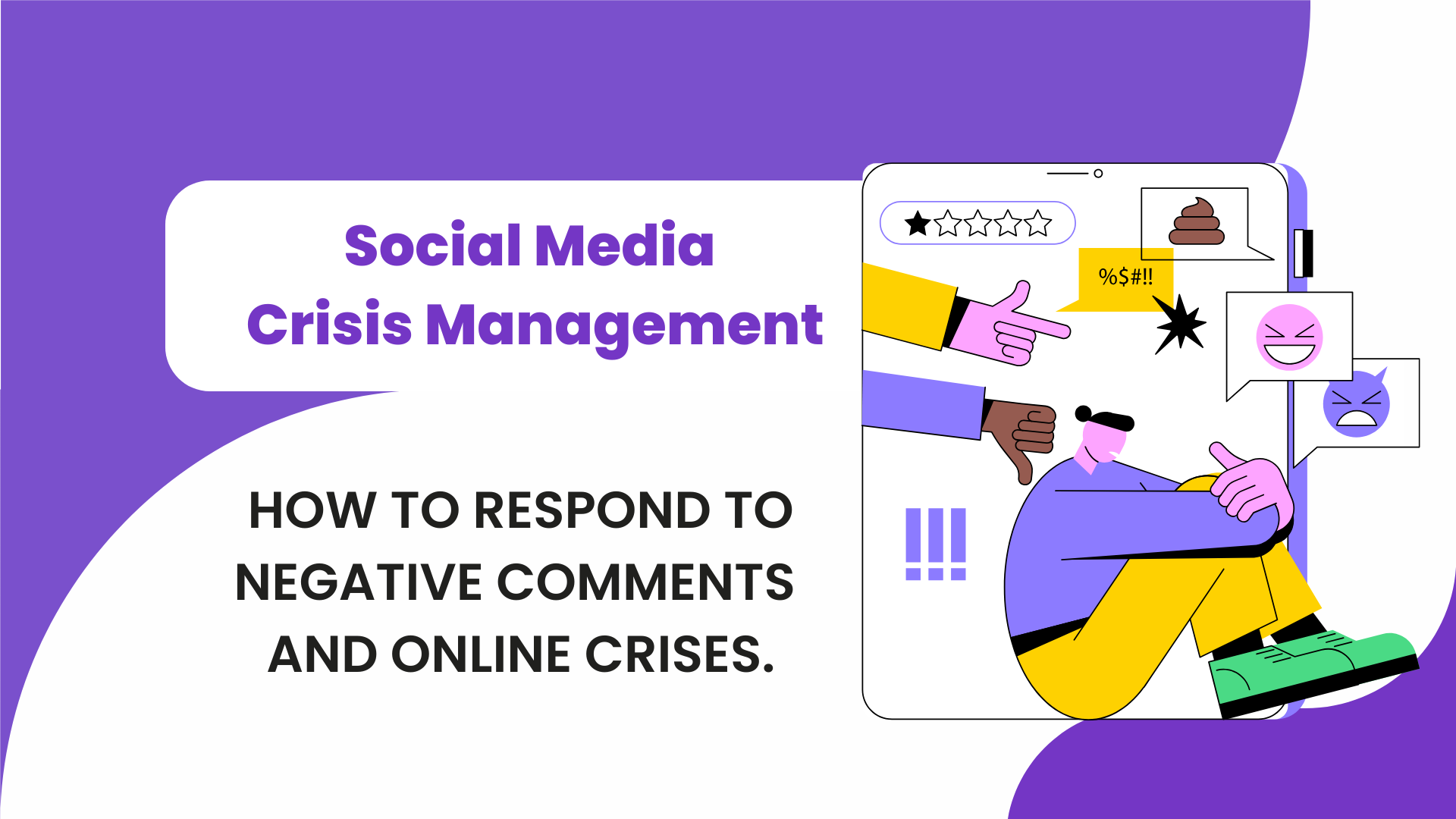Social Media Crisis Management: How to Respond to Negative Comments and Online Crises
In today’s fast-paced digital landscape, social media plays a crucial role in brand communication. However, it also exposes businesses to risks such as negative comments, customer complaints, and online crises. A single viral post can significantly impact a brand’s reputation, making social media crisis management an essential skill for businesses of all sizes.
In this article, we will explore how to handle negative comments effectively, implement crisis management strategies, and restore brand trust. If you are looking for expert digital marketing services to enhance your online presence, check out Teqnoor’s digital marketing solutions.
Understanding Social Media Crises
What is a Social Media Crisis?
A social media crisis occurs when a brand faces widespread public backlash due to an event, post, or comment that sparks negative reactions online. Unlike regular customer complaints, a crisis escalates rapidly and can cause serious damage to a company’s reputation.
Types of Online Crises
- Customer Complaints: Negative reviews or public dissatisfaction about products or services.
- Misinformation: False or misleading content that spreads quickly.
- Ethical Controversies: Scandals related to company policies or employee behaviour.
- Security Breaches: Data leaks or cyberattacks affecting user privacy.
- Viral Outrage: Misinterpreted posts or insensitive marketing campaigns.
To enhance your brand’s online visibility and manage its reputation effectively, consider implementing SEO strategies. Learn more in this insightful blog on SEO strategies.
The Impact of Negative Comments on Brands
How Negative Comments Affect Brand Reputation
- Loss of Customer Trust: People may stop engaging with your brand.
- Decreased Sales: Negative sentiment can lead to boycotts.
- Viral Spread: One bad comment can trigger widespread criticism.
Psychological Effects on Businesses and Customers
- Employees may feel demotivated.
- Customers might hesitate to buy from a brand that appears untrustworthy.
Proactive Strategies to Prevent a Social Media Crisis
- Establish Clear Social Media Guidelines – Train employees on proper online behaviour.
- Monitor Online Presence with Social Listening Tools – Use platforms like Hootsuite or Brandwatch to track mentions.
- Have a Crisis Response Plan Ready – Prepare templates for common issues.
For businesses looking to strengthen their online presence and digital marketing efforts, Teqnoor’s B2B services offer expert solutions.
Steps to Respond to Negative Comments Effectively
1. Stay Calm and Assess the Situation
- Avoid reacting emotionally.
- Evaluate whether the comment is valid or a troll attempt.
2. Respond Promptly and Professionally
- Acknowledge the issue respectfully.
- Provide a constructive solution.
3. Take the Conversation Offline
- Offer to resolve serious concerns through private messaging.
- Maintain a professional tone throughout.
Crafting the Right Response to Negative Feedback
- Acknowledge the Issue: “We understand your concern…”
- Offer a Solution: “We’d love to make this right by…”
- Use Empathy and Professionalism: “We’re sorry for your experience…”
When to Ignore, Hide, or Delete Comments
- Ignore: When dealing with clear trolls.
- Hide: If the comment is offensive but does not warrant deletion.
- Delete: If the comment violates guidelines (e.g., hate speech).
Handling Viral Social Media Crises
- Crisis Containment Strategies: Quick action and transparency.
- Coordinating with PR Teams: Ensure a consistent brand response.
- Issuing Official Statements: Address concerns publicly and professionally.
Leveraging Influencers and Brand Advocates
- Influencers can help rebuild trust by sharing positive experiences.
- Brand advocates (loyal customers) can defend the brand online.
Legal and Ethical Considerations
- Defamation Laws: Avoid making defamatory responses.
- Handling Criticism Ethically: Be respectful and transparent.
Learning from Past Social Media Crises
- Starbucks (2018): Managed racial bias accusations by closing stores for training.
- Domino’s (2009): Recovered from an employee scandal by addressing concerns head-on.
Post-Crisis Recovery and Reputation Management
- Apologise and take corrective action.
- Engage positively with customers.
- Monitor future brand sentiment.
For more expert advice on digital marketing, check out Teqnoor’s services.
Best Tools for Social Media Monitoring and Crisis Management
- Hootsuite – Tracks brand mentions.
- Google Alerts – Notifies about online mentions.
- Sprout Social – Helps manage responses efficiently.
FAQs on Social Media Crisis Management
1. How quickly should I respond to a negative comment?
Ideally, within a few hours to show attentiveness.
2. Should I delete all negative comments?
No, only remove offensive or inappropriate ones.
3. How do I handle a PR disaster?
Acknowledge, apologise, and take action.
4. What if my response goes viral in a bad way?
Assess and refine your approach quickly.
5. Can a crisis improve my brand’s reputation?
Yes, if handled transparently and responsibly.
6. Should I always take issues offline?
Only if it’s a sensitive matter; public responses can build trust.
Conclusion
Handling negative comments and online crises effectively is essential in today’s fast-paced digital world. By being proactive, responding professionally, and learning from past incidents, brands can maintain their reputation and even turn crises into opportunities for stronger customer relationships.
Need expert help with digital marketing and brand reputation management? Explore Teqnoor’s B2B services for tailored solutions


